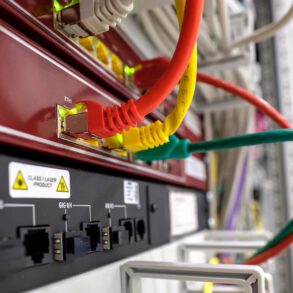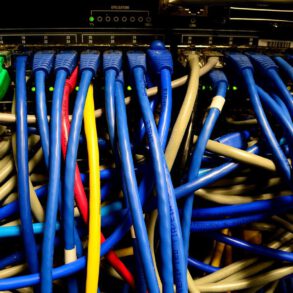Breaking traditional silos, computer hardware and networking that was once considered to be not a very lucrative career avenue, is slowly but steadily gaining a momentum. More and more students today are opting for computer hardware and networking courses. The cause of this paradigm shift in the realm of IT, it can be attributed to the wide use of computers, laptops, mobiles, desktops and internet in private and government organisations that have created huge demand for hardware and networking professionals.
Facing off the hardware components:
Professionals in the hardware and networking domain commonly deal with various hardware components such as chips, computer systems, motherboard, processor, RAM, circuit boards, modems, external hard disks, printers and keyboards. Aspirants who wish to be successful in the field should be inclined towards technical and analytical field. Hardware professionals are required to look after software installations as well as to ensure that computers work faster and efficiently. A hardware professional coupled with networking skills always adds value to a company and is thus always preferred.
The increasing use of computers, laptops and internet has expanded the scope of hardware and networking sector widely.
Factual-based report:
According to the annual report 2014-15 presented by the Department of Electronics & Information Technology (Ministry of Communication and Information Technology), the IT sector has registered tremendous growth over the past decade. It has been estimated that demand of electronic products and systems in India would grow to about US$ 400 billion by 2020. According to NASSCOM, direct employment within the IT sector has reached 3.5 million, while indirect job creation is estimated at 10 million.
Courses in Hardware and networking
Considering the ubiquity and vastness of the sector, the courses are offered in various levels viz. certification, international certification, diploma in hardware and networking, and degree level courses. Hardware and networking aspirants have the option to choose from any of the aforementioned levels of courses and their duration vary as per the levels of courses. The goal of the hardware courses is to offer practical knowledge about the hardware and networking domain and add an extra edge by training students to cope with real life situations. A wide array of opportunities are available for the hardware and networking professionals in India.
Top programmes in the realm of Hardware and Networking:
Linux: This is an international certification course and also the most popular of all in Hardware and Networking for LAN Administration. It has various levels of modules viz. Certification Level 1 (Junior Level LPIC-1), CompTIA Linux+, Certification Level 2 (Advance Level – LPIC-2) and Certification Level 3 (Senior Level LPIC-3).
Cisco Certifications: This is yet another popular certification course in the Hardware and networking sector of the IT industry. CCNA, CCNP and CCIE are some of the most prevalent CISCO certifications. For IT professionals aspiring to make a career in networking industry, Cisco certifications are essential. There are five levels of certification in Cisco – Entry, Associate, Professional, Expert, Architect viz. Cisco Certified Entry Networking Technician (CCENT); Cisco Certified Network Associate (CCNA); Cisco Certified Design Associate (CCDA); Cisco Certified Network Professional (CCNP); Cisco Certified Design Professional (CCDP), Cisco Certified Internetwork Professional (CCIP), Cisco Certified Internetwork Expert (CCIE), Cisco Certified Design Expert (CCDE) and Cisco Certified Architect Certification Process (CCAP) and Cisco Certified Architect Responsibilities (CCAR).
Job opportunities:
After qualifying for the aforementioned courses the candidates would be eligible for varied job roles like System Administrator, Network administrator, System Engineer, Technical Engineer/Computer Hardware Engineer, Network Engineer, Technical support, Help desk technician/Network support technician, IT technician, IT administrator, Field service technician, Security Database development and administration and Intranet Specialist.
Salary package:
The initial package offered in Hardware and Networking jobs mostly start at INR 8000- 12, 000 per month. However, private sector salary is relatively higher. Besides salary, there are several perks available for the employees. Remuneration of a Hardware and networking expert may reach up to Rs 50, 000 to Rs 60, 000 depending upon qualification and experience. Job seekers interested in this field will have opportunities in abundance, particularly in India, where this domain is blossoming as far as employment creation is concerned.
However, choosing the right course is extremely important for a right career growth, and the sooner job seekers interested in this field realise this, the better it would be for the job market.




